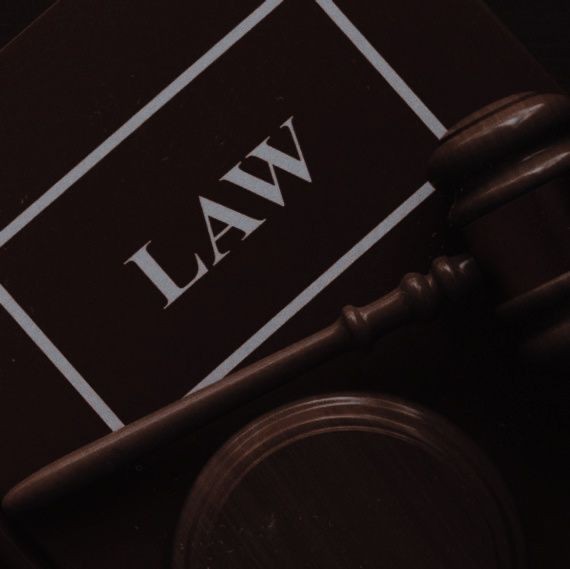"Civil Court has got jurisdiction to try all suits of a civil nature, unless ........................"
Under the Code of Civil Procedure, it is a well settled position that the CivilCourt has got jurisdiction to try all suits of a civil nature unless they are expresslyor impliedly barred. Sec. 9 of the Code of the Civil Procedure provides that "thecourt shall (subject to the provisions herein contained) have jurisdiction to try allsuits of a civil nature excepting suits which their cognizance is either expresslyor impliedly barred". Explanation I say that in a suit, where the right to property or a right to an office is contested, it is a suit of civil nature even if it dependsentirely on the determination of questions as to religious rites or ceremonies. Explanation II say that it is immaterial to see that whether any fees are attachedto that office or not or whether such particular office is attached to a particularplace or not. So, in Order to take cognizance of a suit, according to Sec. 9, twoconditions have to be fulfilled, i.e.
- The suit must be of a civil nature; and
- The cognizance of such suit should not have been expressly or impliedly barred by any law for the time being in force.
If the principal question that arises for consideration is the determination of a civil right and its enforcement, the suit is one of civil nature. Civil rights arise due to the rights over the subject matter and in a civil suit, the civil right or civil duty is enforced against the citizens or the state itself, i.e.; the rights and duties of private life and property of a citizen is dealt in. That may involve in caste question, or property question, or questions related to religious rites or ceremonies or even the jurisdiction of the civil court itself. By the expression "Suit of Civil Nature" only the private rights and obligations of a citizen only is mentioned and not the political or religious questions. A suit in which the principal question relates to caste or religion, it is not of a civil nature. But if the principal question in the suit relates to the determination of the right to property or the right to an office and the adjudication incidentally involves the determination relating to the caste question, or to the religious rites and ceremonies the suit does not ceases to be a civil suit and the civil court's jurisdiction is not ousted. The court has got jurisdiction to adjudicate upon those questions also in order to decide the principal question which is of a civil nature. A series of judgments pronounced by the various High Courts in India, if taken as collectively, give the idea that the following can be considered as suits of a civil nature; ie; suit related to temple and other religious properties, suit for damages for civil wrongs, suit for right to specific relief like declaration, injunction etc.; suit relating to breach of contracts and award of liquidated compensation, a suit for the enforcement of common law rights like the right to vote, the right to use public pathway, the right to entry in a temple and for worship etc.; suit relating to descent burial, dissolution of marriage, restitution of conjugal rights, suit for and on accounts, suit relating to partnership, suit for rent etc. Here the suits are considered as suits of civil nature because there exists a principal question as to the determination of a civil right and its enforcement. But the following are not considered as civil suits.
Suits involving purely caste questions, purely religious ceremonies, for upholding the dignity or honour, for voluntary payment without any agreement, political questions, public policies and those suits which are expressly declared as not civil suits etc. are not considered as civil suits and the civil court has no jurisdiction to try those suits. Cognizance barredThe court has got jurisdiction to try the suit of civil nature, if the cognizance of the suit is not expressly or impliedly barred. A suit is said to be expressly barred" when it is barred by any enactment for the time being in force. But if there is any doubt about the ousting of jurisdiction of a civil court, the court will lean to an interpretation which would maintain the jurisdiction. In other words, the matters falling within the exclusive jurisdiction of Revenue Court's, or under the Code of Criminal Procedure or matters dealt with by special tribunals like Industrial Tribunal, Election Tribunal, Revenue Tribunal, Rent Tribunal, Co-operative Tribunal, Tax Tribunal, and Motor Accidents Claims Tribunal etc. are expressly barred from the cognizance of a civil court. But if the remedy provided by a statute is not adequate and all questions can't be decided by a Special Tribunal, the jurisdiction of a civil court is not barred. A suit is said to be impliedly barred when it is barred by general principles of law. Where a specific remedy is given by a statute, it there by deprives the person who insists upon a remedy of any other form than that given by statute. Political questions belong to the domain of public administrative law and are outside the jurisdiction of Civil Courts: i.e.., a Civil Court has no jurisdiction to entertain and adjudicate upon disputes of political nature.
Thus, it can be seen that the Civil Court has got jurisdiction to try all suits of civil nature unless it is expressly or impliedly barred by any law for the time being in force. In the landmark decision rendered by Hidayathulla CJ, in Dhulabhai Vs State of MP [AIR 1969 SC 78], the principals related to the exclusion of jurisdiction of Civil Courts were enumerated as under,- Where the statute gives a finality to the Orders of the Special Tribunals, the jurisdiction of the civil court must be held to be excluded. But it does not exclude those cases where the provisions of the particular Act, have not been complied with or the Statutory Tribunal has not acted in conformity with the fundamental principles of judicial procedure.
- Where there is an express bar of the jurisdiction of the Court, an examination of the scheme of the particular Act to find the adequacy or the sufficiency of the remedies provided may be relevant, but it is not decisive to sustain the jurisdiction of a Civil Court.
- Challenge to the provisions of the particular Act as 'Ultra Vires' cannot be brought before the Tribunals constituted under the Act.
- When the provision is already declared as unconstitutional or the constitutionality of any provision is to be challenged, a suit is open.
- Where the particular act contains no machinery for refund of tax collected in excess of the constitutional limits or illegally collected, a suit will lie,
- Questions of the correctness of the assessment, apart from its Constitutionality, are for the decision of the authorities and a civil suit does not lie if the Orders of the authorities are declared to be final or there is an express prohibition in the particular Act; and
- An exclusion of the jurisdiction of the civil court is not readily to be inferred unless the conditions above set down apply.
- A Civil Court has got jurisdiction to try all suits of a civil nature unless their cognizance is expressly or impliedly barred.
- Consent can neither confer nor take away the jurisdiction of a court,
- A decree passed by a court without jurisdiction is a nullity and it can be challenged at any stage of the proceedings, in execution proceedings or even in collateral proceedings.
- Distinction between want of jurisdiction and lack of jurisdiction is to be considered.
- The court has got inherent power to decide the question of its own jurisdiction:
- Jurisdiction of the court is depending upon the averments in the plaint and not upon the defences set up in the written statement:
- For determining the question of jurisdiction, the substance of the matter and not the form is important.
- Every presumption regarding the jurisdiction should be in favour of the Civil Court,
- If a statute ousts the jurisdiction of the Civil Court, it must be seriously construed:
- Burden of proof of exclusion of jurisdiction of a court is upon the party who raises such a contention; and
- Even where the jurisdiction of Civil Court is barred, it can still decide whether the provisions of the act have been complied with or whether the Order was passed 'de hors' the provisions of the law.
- Kuruvila Abraham Vs. John 1995 (1) KLT 161
- Antony Vs. Thandiyodu Plantations (P) Ltd. AIR 1996 Ker. 37 5.
- Most Re: PMA Metropolitan Vs. Moran Marthoma 1995 (2) KLT SN 37 P. 28
- State of A.P. Vs. Manjeti L.K. Rao AIR 2000 SC 2220



























